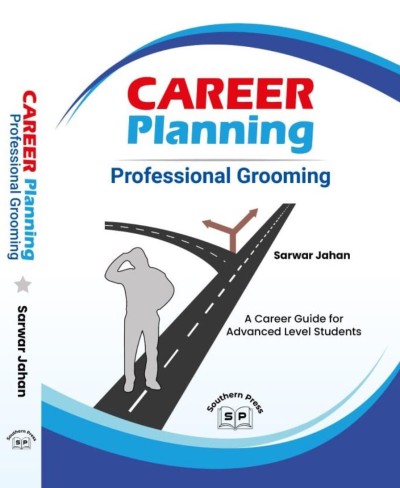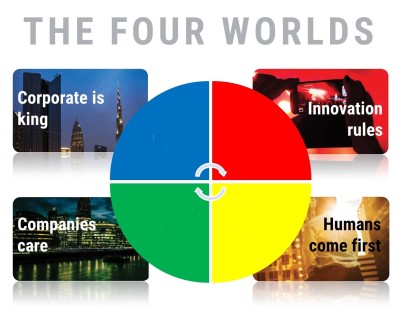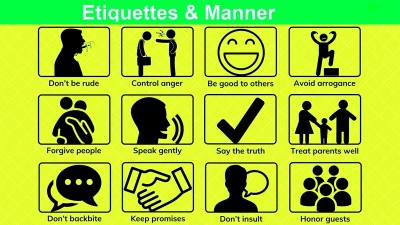Course description
 Slowly but surely, at the end of my undergraduate life, one thought occupies most of my time. What do I do when I graduate from university? Do I enter the job market and focus on gathering as much experience as I can or go for higher education? Will higher education give me an edge in the job market?
Slowly but surely, at the end of my undergraduate life, one thought occupies most of my time. What do I do when I graduate from university? Do I enter the job market and focus on gathering as much experience as I can or go for higher education? Will higher education give me an edge in the job market?
The answers to all these questions are not easy to find, especially when there are many variables in play. Qualifications versus job experience can be compared to two extremes on a scale. Comparing these and calculating which is more important can be tricky as there is no metric to work out the better option.
This debate of whether one should go for higher education or job experience after graduating is as old as higher education itself. Besides, there are so many arguments regarding this topic, which doesn't exactly make the decision-making more comfortable. Some of the main arguments are:
· A higher degree guarantees a particular skill set which can be translated into work skills.
· Success in hands-on work is more valuable than success in higher education.
· Work experience doesn't necessarily provide the exact set of skills needed for future jobs.
· Higher education enables success in academia, not necessarily in a real job environment.
 The reality of the education vs. experience debate is that no single argument can cover all potential situations of a fresh graduate who is weighing his/her options. In an ideal scenario without the either/or dilemma, a candidate would be able to show both a postgrad degree and work experience which would equip him/her to perform better. This combination would require taking a slower route through the journey of tertiary education, in order to have time available for part-time employment. This will help people to see firsthand, the value of their education in a real-life scenario. But to what extent are people successful in implementing this ideal in their practical lives?
The reality of the education vs. experience debate is that no single argument can cover all potential situations of a fresh graduate who is weighing his/her options. In an ideal scenario without the either/or dilemma, a candidate would be able to show both a postgrad degree and work experience which would equip him/her to perform better. This combination would require taking a slower route through the journey of tertiary education, in order to have time available for part-time employment. This will help people to see firsthand, the value of their education in a real-life scenario. But to what extent are people successful in implementing this ideal in their practical lives?
On one hand, a lot of graduates want to climb up the career ladder as fast as they can because this is when they have the energy to get practical work skills. In the competitive job market, where everything moves at a fast pace, they don't want to be left behind. On the other hand, another group believes that higher education will give them deeper knowledge before they actually enter the job market. In reality, there are a lot of variables at work.
Timing matters. The time needed to obtain a degree should be taken into account. One in a technical field might become obsolete without relevant work experience. Things change rapidly and it is necessary to keep up with the trends.
 The field of work matters. Someone who is planning a higher degree should take into account their actual line of work. It might demand higher education, whereas others need job expertise that a degree can’t offer.
The field of work matters. Someone who is planning a higher degree should take into account their actual line of work. It might demand higher education, whereas others need job expertise that a degree can’t offer.
There is another way one can decide and that is to look at the numbers. According to the National Bureau of Labour Statistics, tertiary education pays higher earnings but only up to a certain point. A Master’s degree gets you more money than a Bachelor’s but a Doctorate, the highest point of educational attainment, does not.
Ali Hoque, brand manager at a multinational company said, "For a global career, a degree from abroad is helpful. However, in most companies, on-the-job learning opportunities are great where you get to learn everything that's needed specific to your role.” Raul Khan, who is doing his undergrad in Pharmacology at the University of Manchester, said he had to do an internship at a pharmaceutical company in Germany last year and he preferred it to studying. Rafia Rahman, studying at Oulu University of Applied Sciences said, “People should go for higher education if they want to have extensive research based knowledge of a particular field. Reasons to have a job right away would be to build the career profile which brings a lot of stability too.”
In the end, the choice between job experience and higher education is very subjective and seems to be unique to the individual's circumstances. The final decision should be taken after proper consideration of all relevant variables and trade-offs.





















